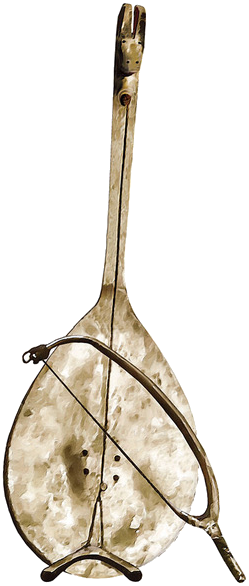Volume 33 marks a major transition for Oral Tradition. After thirty-two fruitful years at the University of Missouri, the journal has now found a new home at Harvard University. In the “Editor’s Column” that prefaced the first issue of Oral Tradition in 1986, John Miles Foley justified the creation of the new journal by speaking of the need for a periodical “devoted exclusively to the study of oral tradition in its many forms,” one which would “inform specialists of parallel developments in their own and different areas” and “build and maintain bridges among disciplines in order to promote the healthy growth of the field as a whole.” Thirty-three years after its inception, one can say not only that the journal created by John Foley has lived up to the goals of its founder, having done much to promote the growth of the field, but also that the need for such a clearing-house and meeting-place remains as keenly felt as ever. We and our colleagues who have helped find a new home for Oral Tradition are proud to have secured what we hope will be an equally fruitful future for the journal at Harvard.
A transition of this scale presents many challenges. The biggest challenge we have faced has been the building of a new online platform for the delivery of the journal. The new website has a substantially different design from the one with which long-time readers are familiar, but it retains most of the essential features of the former website. Most importantly, all of the journal’s back issues, including their eCompanions, remain freely available. There have been other challenges as well: practices that had become routine for the journal’s former stewards had to be re-learned or re-imagined, a new cover was designed, and a new editor had to find his footing.
As a consequence of the effort required to meet these challenges, there has been an unavoidable delay in the publication of this latest issue, which we have designated as Issue 1 of Volume 33, even though the next issue, in 2020, will belong to Volume 34. Going forward, we anticipate publishing only one regular issue each year, reserving the second issue for special, guest-edited issues (for which we are happy to entertain proposals).
The present issue contains five essays that illustrate individually the vitality of the study of oral tradition, and collectively its scope. The issue opens with an essay on the Dead Sea Scrolls by Shem Miller, who demonstrates the power of John Miles Foley’s methodology to recover traces of oral performance even from texts of the distant past. Timothy Thurston, applying related methodologies to contemporary Tibetan wedding speeches, explores ways in which auspiciousness can be created in performance by forms of traditional referentiality. There follows a sequence of three essays, each of which engages with the legacy of Milman Parry, the Harvard scholar whose work on Homeric poetry and South Slavic epic song laid the foundation for so much contemporary research on oral traditions. Texts collected by Parry in the former Yugoslavia provide the primary evidence for Milan Vidaković, who examines the quasi-magical power of questions—an otherwise unassuming class of utterances—to assert power over others. Richard Hughes Gibson assesses the effect of Parry’s ideas about Homeric style on the translation of the Homeric poems into English. Finally, Steve Reece considers accounts of Parry’s own life and tragic death as instances of a contemporary oral-and-written tradition, which he tests against documentary evidence.
It seems fitting that the first issue of Oral Tradition published from its new home at Harvard should include these explorations of aspects of Parry’s legacy. The coming of Oral
Tradition to Harvard, which is also the home of the Milman Parry Collection of Oral Literature, has something of the feel of a family reunion. It is a reunion, however, that is not without a twinge of regret for the fact that the journal has had to leave an institution that for so long supported its growth and enabled it flourish. It is our hope that the move to Harvard will enable the journal to continue to grow and flourish. With the support of you, our readers, we are certain that it will.
David F. Elmer
John Zemke
Editors, Oral Tradition
* * *
It has been my honor and privilege to guide Oral Tradition since the death of John Miles Foley. I express my gratitude to the many colleagues, members of the editorial board and others, who shared their expertise and advice during these seven years. Similarly, I want to thank the authors who entrusted their essays to Oral Tradition. Finally, my thanks to all of the editorial staff who made publication possible, and especially to Mr. Mark Jarvis, who ensured everything went according to plan. Secure in the knowledge that David Elmer will continue building on this legacy, it is timely to announce my retirement as editor, and congratulate David on the occasion of his assuming the duty.
John Zemke
